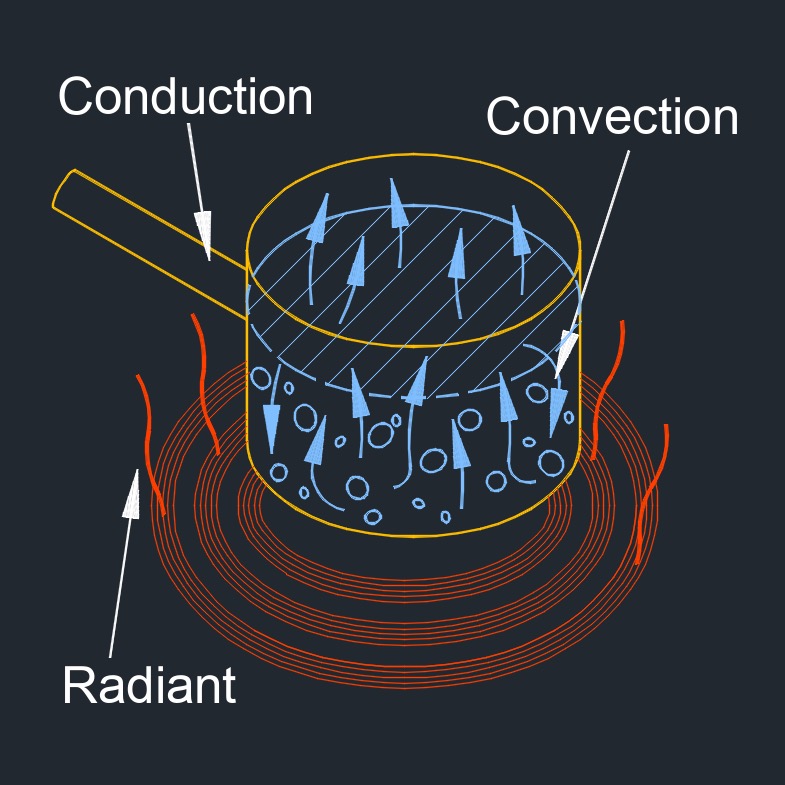Heat Transfer Coefficient
Heat Transfer Coefficient Formula |
||
|
\( h \;=\; \dfrac{ Q" }{ \Delta T }\) (Heat Transfer Coefficient) \( Q" \;=\; h \cdot \Delta T \) \( \Delta T \;=\; \dfrac{ Q" }{ h }\) |
||
| Symbol | English | Metric |
| \( h \) = Heat Transfer Coefficient | \(Btu \;/\; hr-ft^2-F\) | \(W \;/\; m^2-K\) |
| \( Q" \) = Heat Flux | \(Btu \;/\; hr-ft^2\) | \(W \;/\; m^2\) |
| \( \Delta T \) = Temperature Difference Between the Solid Surface and Surrounding Area | \(^\circ F\) | \(^\circ K\) |
 Heat transfer coefficient, abbreviated as \(h\), also called film coefficient or film effectiveness, is a measure of how effectively heat is transferred from one medium to another in a thermal system. It quantifies the rate of heat transfer per unit area for a given temperature difference. In other words, it tells us how fast heat can move through a material or between two different materials. The heat transfer coefficient depends on various factors, including the properties of the materials involved, the geometry of the system, and the nature of the heat transfer process (conduction, convection, or radiation).
Heat transfer coefficient, abbreviated as \(h\), also called film coefficient or film effectiveness, is a measure of how effectively heat is transferred from one medium to another in a thermal system. It quantifies the rate of heat transfer per unit area for a given temperature difference. In other words, it tells us how fast heat can move through a material or between two different materials. The heat transfer coefficient depends on various factors, including the properties of the materials involved, the geometry of the system, and the nature of the heat transfer process (conduction, convection, or radiation).
In practical engineering and thermal analysis, determining the heat transfer coefficient is crucial for designing and optimizing heat exchangers, HVAC systems, and various other heat transfer applications. Engineers often use experimental data, correlations, and mathematical models to estimate the heat transfer coefficient in different situations.

